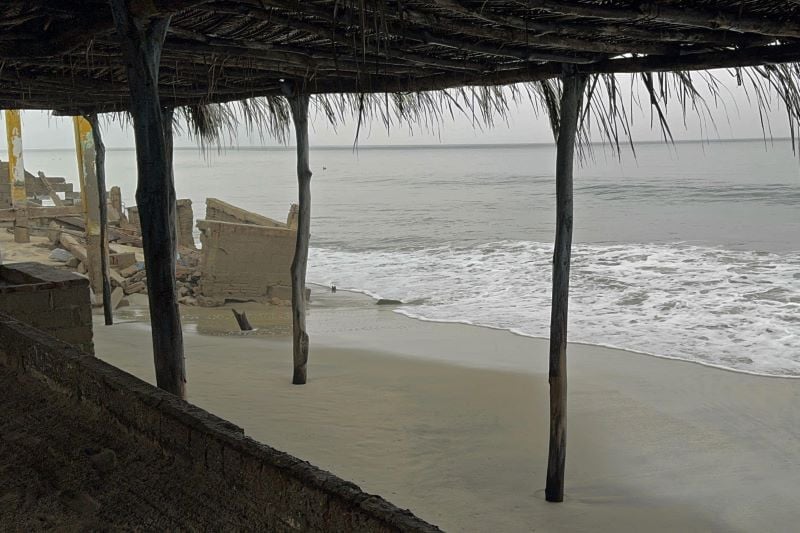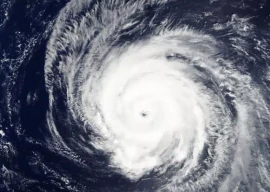
At least two people died after Hurricane John slammed into Mexico's southern Pacific coast overnight, authorities reported Tuesday, with the cyclone since downgraded to a tropical storm and expected to weaken further.
Forecasters nevertheless warned of strong rains and flash floods inundating the coast for the next few days.
"Two people were reported dead due to a landslide in their home" in the southern town of Tlacoachistlahuaca, Evelyn Salgado, the governor of the Mexican state of Guerrero, told a news conference.
The victims in the mountainous community were a woman and a child, according to a civil protection report.
The US-based National Hurricane Center (NHC) said in an afternoon update that the storm was about 110 kilometers (70 miles) from the resort city of Acapulco and was registering sustained winds of 55 kilometers per hour (35 mph).
The impending storm caused jitters among residents of Acapulco, where memories are still fresh of Hurricane Otis, a scale-topping Category 5 storm that left a trail of destruction and several dozen people dead in October last year.
Authorities were taken by surprise when Otis rapidly intensified within hours from a tropical storm to the most powerful category on the five-step Saffir-Simpson scale.
Marta Sotelo told AFP her nerves were frayed as winds blew in, in the same way as Otis had, with "raised dust, metal sheets, everything."
"The children became hysterical," she told AFP, adding that she and her relatives preferred to wait out John in a shelter.
Flash flooding
The southern states of Guerrero and Oaxaca have been hardest hit by the storm, and thousands of military and emergency personnel have been deployed.
Some 300 shelters have been set up to aid residents in high-risk areas.
The governor, Salgado, said towns in Guerrero had registered heavy rainfall, road closures, power outages and the suspension of classes.
Oaxaca has seen fallen trees in several municipalities and road damage. Airports in the region's resort towns of Huatulco and Puerto Escondido have suspended operations.
The NHC had warned that while John has been downgraded, there remained a risk of "significant and possibly catastrophic, life-threatening flash flooding and mudslides" in the southern states of Chiapas, Oaxaca and Guerrero.
Through Thursday, John was forecast to produce up to 15 inches of rain in parts of Chiapas, and nearly double that in areas of Oaxaca and Guerrero, it said.
"John is producing extraordinary rains (greater than 250 mm or 9.8 inches) in Oaxaca and Guerrero; torrential rains in Chiapas," the National Civil Protection agency said in a post on X early Tuesday.
The agency had issued a red alert on Monday, telling people to stay indoors and keep away from windows.
President Andres Manuel Lopez Obrador told his morning press conference that John "was a strong phenomenon, with a lot of rain."
He had earlier urged people living along the affected coastline to be prepared.
"Seek higher ground, protect yourselves and do not forget that the most important thing is life; material things are replaceable," he wrote on X.
Hurricanes hit Mexico every year on both its Pacific and Atlantic coasts, usually between May and November.
Last July, the Mexican Caribbean was hit by Hurricane Beryl, which forced the evacuation of hundreds of tourists and caused at least 18 deaths on Caribbean islands, in Venezuela and the United States.
On Tuesday, Tropical Storm Helene formed in the Caribbean and the NHC warned it could become a hurricane off the coast of Mexico where the resorts of Cancun, the Riviera Maya and Tulum are located.


1672385156-0/Andrew-Tate-(1)1672385156-0-165x106.webp)

















COMMENTS
Comments are moderated and generally will be posted if they are on-topic and not abusive.
For more information, please see our Comments FAQ